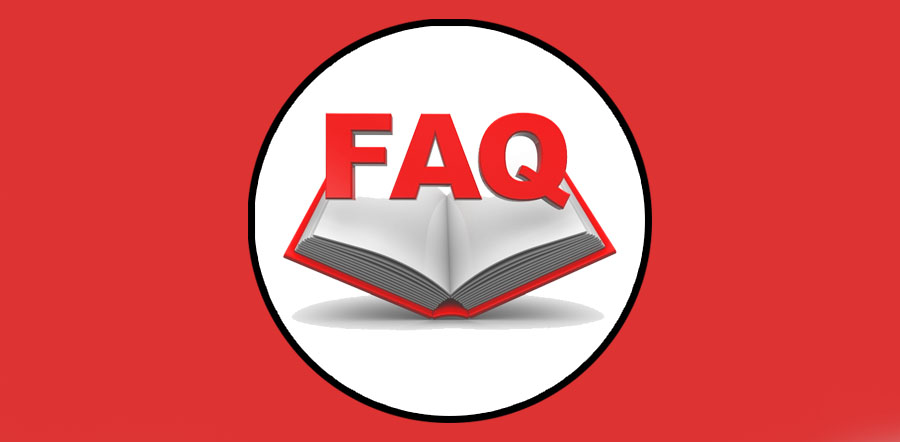ITSM20FB
Guaranteed Success in ITSM20FB Exam
“The ITSM20FB practice test is something that You’re looking for a very long time is here !”
Pass your Exin ITSM20FB Exam with the Latest QuizDumps ITSM20FB PDF Questions and Answers. QuizDumps provides [Authentic , Updated and Real] ITSM20FB Braindumps that are prepared and verified by IT experts. If you want to get high marks then start your preparation now with QuizDumps Study Material.
1: Download Q&A PDF
You can easily download the ITSM20FB Questions Answers PDF file for the preparation of IT Service Management Foundation Bridge Exam and it is especially designed for Exin ITSM20FB exam and QuizDumps prepared a list of questions that would be asked in the real ITSM20FB exam.
2: Prepare Questions Answers
Use QuizDumps's ITSM20FB exam dumps PDF and prepare IT Service Management Foundation Bridge Exam ITSM20FB Questions Answers with 100% confidently. We offer 100% real, updated and verified exam questions and answers tested and prepared by experts to pass Exin ITSM20FB exam.
3: Pass Your Exam
After your preparation for IT Service Management Foundation Bridge Exam ITSM20FB exam by using QuizDumps's exam material kit you will be ready to attempt all the ITSM20FB questions confidently which will make 100% guaranteed your success in the first attempt with really good grades.
-
LEED-AP-ND
LEED Certifications
Updated: 2024-11-19 100 Questions -
PCCSE
Prisma Certified Cloud Security Engineer
Updated: 2023-02-06 260 Questions -
300-735
CCNP Security
Updated: 2020-11-18 60 Questions -
APM-001
Associate in Project Management
Updated: 2019-12-17 704 Questions -
PGCES-02
PostgreSQL Certified Engineer
Updated: 2017-12-14 142 Questions -
2V0-72.22
VMware Certified Professional
Updated: 2022-03-14 79 Questions -
CPEH-001
GAQM Certified Ethical Hacker
Updated: 2021-11-11 877 Questions -
DEX-450
Platform Developer I
Updated: 2023-02-10 200 Questions
Main points of Exin ITSM20FB Test
The EXIN ITIL Foundation (ITSM20FB) exam covers the core concepts of ITIL 4. The main points revolve around understanding the ITIL 4 framework and its key components. Here's a breakdown of the essential areas:
1. ITIL 4 Foundation Concepts: This section lays the groundwork. You need to understand what ITIL is, its purpose, and its value proposition for organizations. This includes:
- Purpose of ITIL: Aligning IT services with business needs.
- ITIL Guiding Principles: These are crucial and frequently tested. Understand and be able to apply them.
- The Four Dimensions of Service Management: People, Processes, Products & Services, Partners & Suppliers (and how they interact).
- The Service Value System (SVS): The core model showcasing how value is created and delivered. Understand its components: Value Streams, Practices, Governance, and Continual Improvement.
- Service Value Chain: The activities that contribute to service value creation. Knowing each stage and how they relate is vital.
- Practices: Understand the purpose and general activities within various practices (e.g., Service Level Management, Incident Management, Problem Management, Change Management etc.). You don't need deep operational detail, but you should grasp their roles in the SVS.
2. Key Concepts and Terminology: The exam tests your understanding of ITIL terminology and concepts. You must be comfortable with definitions and how they relate to each other.
3. Applying ITIL in Different Contexts: The exam may include scenarios requiring you to apply ITIL principles to practical situations. This emphasizes understanding why ITIL practices are used, not just what they are.
4. Focus on the "Why" More than the "How": This is a Foundation exam. It assesses your foundational understanding of the framework, not your ability to perform specific operational tasks. You'll be tested on understanding the purpose and context of ITIL practices, not the detailed procedures within those practices.
In short, the exam focuses on:
- Understanding the overall ITIL 4 framework and its structure.
- Grasping the core concepts and their relationships.
- Applying your knowledge to hypothetical scenarios.
- Remembering key terminology and definitions.
To prepare effectively, use official ITIL 4 Foundation materials (like the AXELOS publications), practice questions, and mock exams. Focus on understanding the interactions between different parts of the framework rather than memorizing specific procedures.
Comments

